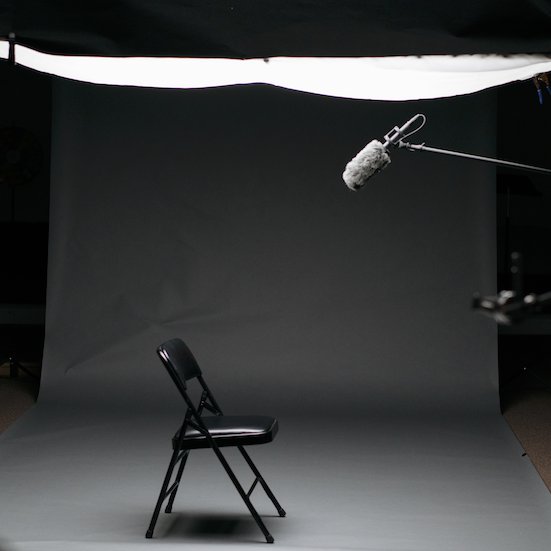

Conspiracy theories and covert news sources during the COVID crisis seem to be shifting our views on facts, truth and authority as more of us ask ‘where should I get my news from?’ and ‘who are the experts now?’
In search of some answers we caught up with The IMPACT Agency’s resident Behavioural Specialist Kris White to shed some light on the fine line between rational and irrational behaviour.
Fake news and why keep clicking on it
On our radar since 2014, fake news can’t even get its own origin story straight with BuzzFeed editor Craig Silverman and President Trump each claiming to have coined the term.
Regardless of who said it first, fakes news has been making merry throughout the pandemic. From charlatans peddling magic COVID cures to wild 5G conspiracy theorists or the rise of the ‘sovereign citizen’; the common link between them is that they chip away at the credibility of those in authority or experts we feel we should trust.
In the first stages of the pandemic, news consumers across the country leaned in hard to the sources they knew and trusted for vital updates and information. March audience data revealed a sharp rise in traditional media subscriptions and viewership figures.
In April mediaweek reported that news audiences surged in March when the first wave of COVID-19 hit. ABC audiences doubled and Guardian Australia readership shot ahead becoming the country’s fastest growing news site up 104 per cent with 11.6 million readers turning to the masthead.
In June 2020, 54 per cent of us sought impartial news and 62 per cent considered independent journalists very or extremely important, according to the annual Digital News Report (DNR) from the University of Canberra.
This shift indicates a distinct move away from tabloid media and suggests a step back in our trust in the big-name outlets we formerly gravitated towards. There is also a move towards a preference for smaller publishers, the niche news organisations which provide news and views their audience agrees with wholeheartedly.
When ‘reality tribes’ bite
According to Kris, uncertainty is the key driver impacting how consumers engage with the media; creating a new phenomenon in our global media landscape, which he aptly refers to as ‘reality tribes’.
“We are storytellers and we make sense of our world through stories and moral lenses – often shaping the facts to a particular narrative, effectively cherry-picking our information and data. Our sense of truth is wrapped up in our identity,” explains Kris.
“We need to close the loop on all the unknowns, but at the same time don’t want answers that threaten our identity. When we look to those we think are ‘in the know’, they’ll coincidentally happen to be good storytellers, and also hold the same narratives as our own. Various studies support this idea which I think of as our ‘reality tribes’. Look at the proliferation of closed Facebook groups, Reddit, podcasts, vlogs, YouTube – we flock to like-minded people with aligned outlooks,” he says.
Kris tells us these tribes permeate social, political and news landscapes, connecting like-minded people with similar views who continually reinforce each other. He takes this view further saying that we are moving towards ‘tribal leaders’ or ‘chieftains of fact’ who are individuals who position themselves as gurus of information and truth and/or fake news. Often the source is more important than facts.
What does this mean for Aussie media?
According to Kris, fake news could be viewed as a virus itself which keeps cropping up across media and politics. He observes that we have imported some of the narrative from the States (e.g. the Bill Gates microchip conspiracy), but overall notes that Australians have a pragmatic approach to the news.
“In general, Australians are well informed; governed with collective common-sense prevailing on the whole.
“We have tribal groups in Australia too of course, but we are aware of the partisan nature of media with certain reporting slants. And everybody thinks their news source is credible and neutral,” observes Kris.
To this point Kris notes that early on in the COVID crisis a degree of trust was established here where mainstream news outlets, health professionals and political leaders in Australia conveyed urgency and gravity about the situation. This is also helped by favourable comparison to how COVID was handled in the US.
Kris predicts there will still be a gravitation towards tabloid news, but with more people open to exploring ‘alternate facts’ and a further splintering of these tribal groups enabling us to cherry pick as we choose to fit our position and polemic.
Connecting to audiences in a crisis
With reality tribes permeating our news and evolving media landscape, Kris also tells us the further splintering of these tribes creates a more fractured approach to authority. So, what does this mean for government agencies, health experts, businesses and brands scrambling to connect with the public in a global pandemic?
Kris notes that organisations and brands will increasingly get caught up in their communities’, customer’s, employee’s fractured realities.
“More than just facts, information, or reasons to believe, to take back public discourse, authorities need to frame communications with their audience around shared values. Various studies have shown that it is easier to establish trust by starting with shared understanding than it is to start with brute force logic. A question for organisations is what reality are they creating with their brand? There may be a need to segment audiences according to types of conspiratorial, critical thinking, moral foundations, trust, outrage etc,” he says.
Access to the ECCO Global Communications Network is simple. Contact information for a specific geography is available on the agency overview pages accessed here or contact the ECCO Global Communications office via email info@ecco-network.com.